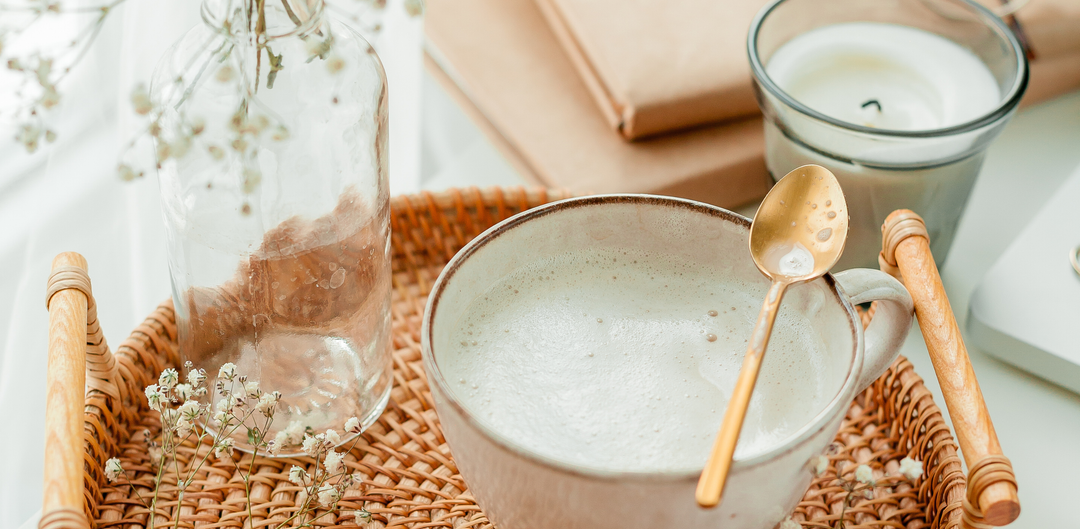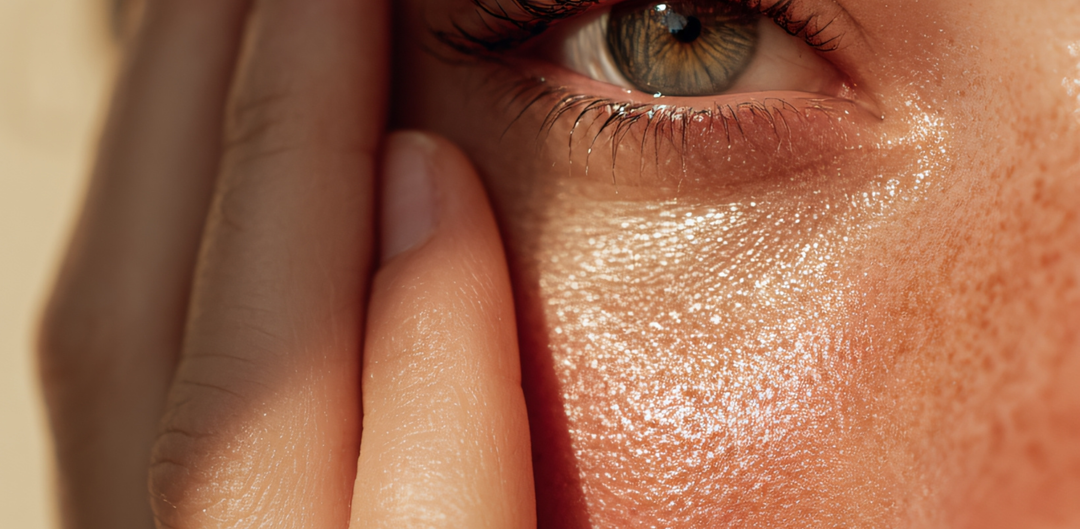Chapter Three - Welcome
Written by Kirsty Harkness
Arriving in the heart of Zaire was like being dropped into the middle of a dream. Vibrant, unfamiliar, utterly alive, and very hot!
There was no easing in gently.
I was swept up from the moment I stepped out of the truck and into village life, introduced to what felt like hundreds of people in a blur of names, handshakes, hugs, and wide-eyed curiosity. Jess and I were the new arrivals, light-skinned foreigners who stood out in every way.
As we walked through the village, the children came running, laughing, calling out, singing songs. They couldn’t quite manage my name, so they made up their own version and chanted “Ka-iss-ity! Ka-iss-ity!” as they danced around us.
They reached for our hands, rubbed our arms, poked at our skin, touched our hair. My pale arms were stroked like I was made of silk. My blonde hair and blue eyes drew wide eyes. I felt more assessed than a prized racehorse at an owner’s luncheon.
But it wasn’t just curiosity; there was joy in their welcome. Open-hearted joy. We were welcome here and were being folded into something big and warm and communal.
We arrived at the house that would be home. We ate mangoes, fresh bread baked over an open fire, and a scoop-shaped ball of maize dough used to mop up stew. We didn’t use spoons. We didn’t need them here.
Jess showed me how to sort laundry so the flies wouldn’t get in. “You have to iron everything,” she said, “even your undies. Otherwise, you get larvae growing in your skin.” I laughed. I thought she was joking. She wasn’t.
Oh, I had so much to learn.
That first night, I stood under the monsoon rain for a shower. Warm but refreshing.
Everything smelled of wet soil, of firewood smoke, of life.
When it wasn’t raining, there was to be one bath a week, pumped from the village well and shared by the family. Monsoon rains only lasted through the wet season.
I lay in bed with the mosquito net tucked tightly under my mattress. It was 36 degrees in my room. My pillow was damp. The walls hummed with cicadas. I was too hot to sleep and too alive to care.
The next day, I met Baraka. He had survived polio as a baby and walked with a determined limp that spoke of the battles he’d already faced. That’s not his real name, of course, nor the others I share with you. They deserve their privacy, but even more, they deserve honour.
Baraka was Lily’s right-hand man. He was kind and good, a steady presence who seemed to be everywhere at once. Helping in the hospital, running errands at the school, fixing things, fetching people, checking in on the sick.
Always helpful. Always calm. Always there.
Living in a place where vaccines were not routine, Baraka was a quiet reminder of what strength and grace can look like when protection comes too late.
Then there were Jean-Pierre and Emmanuel. Respected elders in the community and locally trained doctors at the hospital. Both were steady, wise, and endlessly generous with their time. Seamus, our quietly brilliant surgeon, had trained them in basic surgical procedures, and they were exceptional. If I were ever called in to assist with a caesarean or a hernia repair, I would usually be standing beside one of them.
They didn’t just work with us, they taught us. When I wasn’t scrubbed in with Seamus in the main theatre, I was scrubbed in with one of them. Over time, all three of them trained me in the more routine procedures. I began assisting more confidently, suturing, delivering babies, learning to lead when needed.
We learnt how to sterilise and reuse everything. There was no such thing as single-use here. Every instrument was scrubbed, boiled, dried, and returned to rotation with care and precision. I learned fast because I had to, but also because I was surrounded by people like them.
Seamus himself was a wonderful teacher, though in a very different way. I remember one of my first days in theatre, he placed a cannula into a patient's arm while I observed. Then he turned to me at the next patient and said, “You do the next one, then prep him for theatre.”
I blinked. “I don’t know how to put a cannula in.”
“You watched me do the last one, didn’t you?”
And with that, he walked out.
I froze. I had no idea what I was doing. But Jean-Pierre leaned over with a grin and said, “Here, let me show you.” Just like that. Calm. Patient. Kind.
There’s an old saying in medicine: See one, do one, teach one. And here, that wasn’t a joke, it was the honest truth.
I swear Seamus was just on the other side of the door, waiting to see if I’d pull it off. Nothing like pressure to learn fast.
And that was the thing about Seamus. He was always there. Calm, unassuming, solid. He never judged. Never made you feel silly for asking. He treated you with more respect than your confidence deserved, and somehow that made you rise to meet it. You could ask him anything, and I often did. He’d take it in stride, explain what needed explaining, and then quietly carry on.
That, more than anything, made space for me to grow.
Then there was Lily, our senior nurse who you have already met. The backbone of the hospital. She was fast, sharp, and deeply respected. Her husband Herb, who you also now know, was the practical, steady hand behind the scenes. Fixing, managing, keeping everything ticking along. Their daughter Jess, my friend and the one who brought me here, made everything feel familiar, even when it was wildly new. Her younger sister, Sarah, was home-schooled with materials sent from New Zealand so she could keep up with the curriculum. Their brothers, Isaac and Joshua, were away at boarding school in Zambia, but when they returned on breaks, the whole place lit up with their energy.
Our home here under the trees was our sanctuary from the heat and hospital.
We had a fabulous team there too. People who had worked with Lily and Herb for over ten years. Creating employment was an important part of what Lily and Herb brought to the village, supported by local churches back in New Zealand. Zola was our part-time cook and owner of the local bakery. She turned maize, salt, and a few garden vegetables into delicious healthy daily stews. We didn’t have the luxury of diet variation here, we were thankful for the vegetables from the gardens and the hands that helped prepare it.
Each morning started with thick maize porridge, ground fresh from the gardens. Lunch was usually a vegetable stew, and dinner? Freshly baked buns cooked over an open flame. On the weekend we would roll sticky rice into balls, roast them on the fire and spread them with marmite from home.
Once a week, there’d be meat. A chicken from the yard, or fish dried in the sun and bought at the market. And occasionally, like a delicious treat, we would get tomatoes delivered with the mail plane from a friend of Lily’s Garden in Zambia. We never went hungry. This was enough.
With no electricity, everything was prepared by hand over the fire. No fridge. No gas stove. Just rhythm, patience, fire and care.
The last stalwart at the house was André. Herb’s right-hand man. He could fix anything, build anything, grow anything. He kept the grounds in shape, tended to the tools, and handled supply runs into town. He was our go-to for just about everything outside of the hospital. He was our advocate to the village also. He and Herb would regularly visit the village chief, and although Herb & Lily had been here for years, Andre represented us.
One day, I received a package from home for my birthday. Inside was a bag of pascal sweets, and I lit up like it was Christmas. We were all in the lounge opening our mail, and everyone was excited as I opened the bag of sweets and offered one first to André. He took the whole bag, said thanks and walked out. I was stunned into silence, unsure what to say. Until someone gently explained that to take the full gift was a sign of respect. If he had said no, or only taken one sweet, he would have disrespected me. Lesson learned. It made me feel better to know he had children at home who I knew he would share the spoils with for the next month.
But I never forgot this piece of culture.
It didn’t take long for this to feel like home. Not just the place, but the people.
They weren’t just my colleagues or neighbours. They were my teachers, my family, my community.
I was settling into this new life.
This new reality that was only just beginning.
Next: I was beginning to find my feet, but nothing could prepare me for Eugenie - a little girl whose wound wouldn’t heal, and whose story would change me forever.
Start from the beginning: Chapter One
To protect privacy, names have been changed but these are all true stories.
With thanks to my editor and sounding boards. Sometimes it takes another set of eyes to help find the right words. I’ve always been better at feeling a story than finessing every sentence.
Glossary Note: Zaire
At the time of this story, the country now known as the Democratic Republic of the Congo (DRC) was officially called Zaire. From 1971 to 1997, the nation bore that name under the rule of President Mobutu Sese Seko. Today, the same region is referred to as the DRC, but for historical accuracy and personal authenticity, I’ve used “Zaire” throughout this book to reflect the time and place as I experienced it.
About the Author
Kirsty Harkness is the founder of Hark & Zander, a premium natural skincare brand inspired by care, courage, and connection. Before launching her business, Kirsty worked as a nurse, photographer, and vineyard owner — a path that’s taken her from remote African hospitals to the heart of New Zealand’s wine country. Founder’s Footsteps shares true stories from a very different life, written for her daughter and anyone who’s ever felt the pull of purpose, people, and place.





